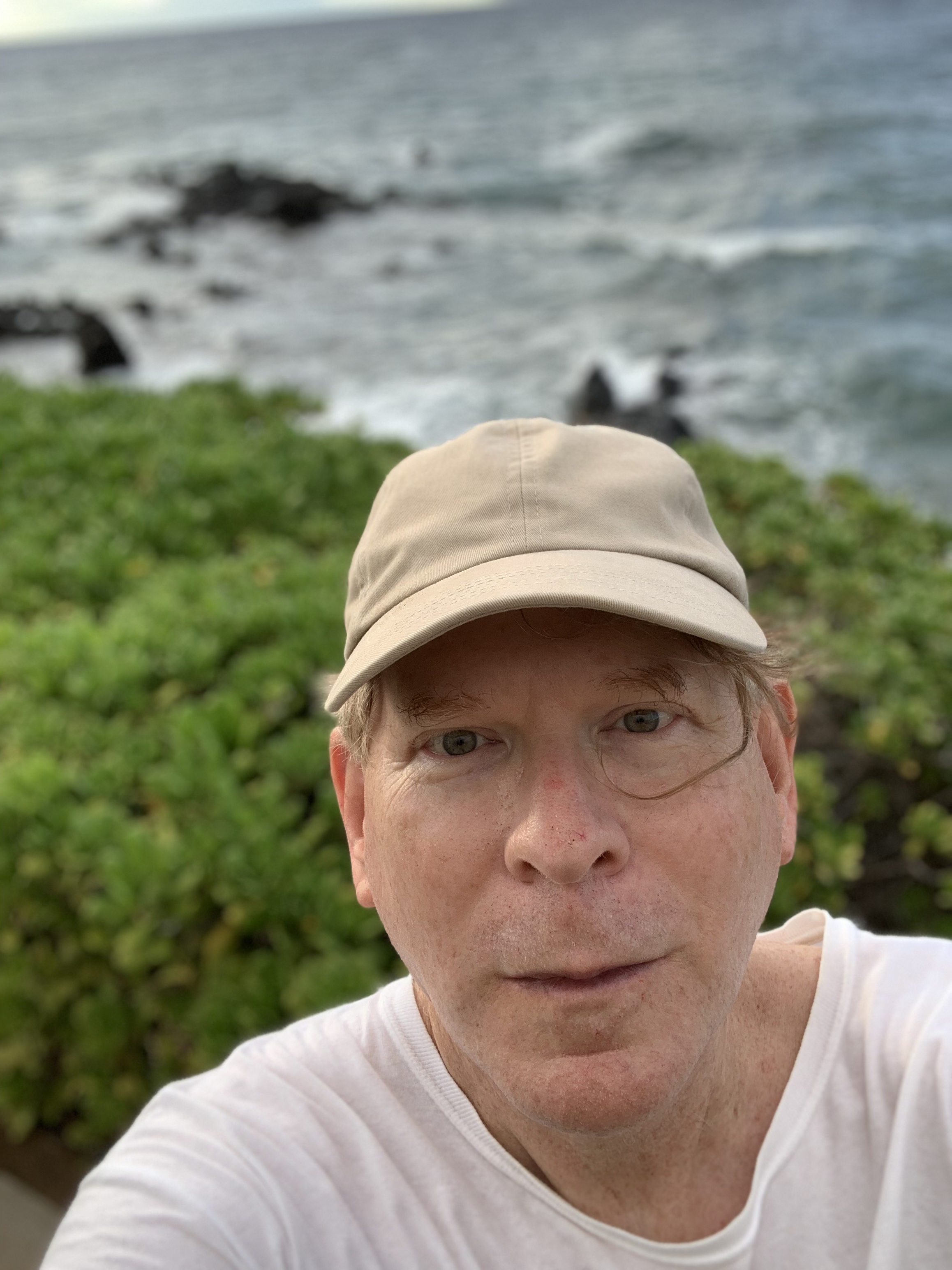Ticket To Improvise

Michael Robinson (with beach sand on face in Maui)
There are grand memories of joyfully celebrating the music of the Beatles with my closest childhood friend, Richard "Dickie" Ellenson, who later coined the phrase, "It's not TV. It's HBO." Chief among these is standing in a corner of the elegant living room in his home situated on the canals of South Merrick, Long Island, thrilling to their version of Please Mister Postman, the staggering majesty of John Lennon's lead vocals in a minor mode being transportative and transformative at once, emanating from a finely carved antique wooden cabinet holding the turntable. Now, unexpectedly finding myself a jazz pianist along with being a composer who resuscitated Western classical music, a story recalling the David and Goliath narrative substituting one computer for one slingshot, I have returned to my Beatles roots. In the mid-twentieth century, European classical music of the time was superseded intellectually, expressively, spiritually and technically by American jazz, Indian classical music, and British and American rock, the latter led by the four working class lads from Liverpool. Like Brian Epstein, the essential manager of the Beatles, I am Jewish and from the upper middle class. When I met George Harrison he astutely realized that my last name had been changed at some point. It is with great pleasure and sense of adventure returning to my musical beginnings, partnering with the music of the Beatles in the form of piano improvisations. Their finest songs are as elevated as those that became jazz standards, the most accomplished composer of standards from England being Ray Noble. However, Beatles songs have an entirely different cultural milieu and musical thrust compared to standards historically affiliated with jazz. Unlike standards, Beatles songs defy reinterpretation, being intrinsically bound to their creators. Thus, it was a daunting challenge entering into this arena. Fortunately, it just happened, sailing without a second thought, guided by navigational musical instincts and feeling. Tapping into that mindset requires a degree of acclimation and resourcefulness in terms of improvisational approach. I Am the Walrus is the Beethoven Ninth of the Beatles. While My Guitar Gently Weeps is my absolute favorite Beatles song. Here they are like never done before from the Nobody Told You album. Slowly Melting includes the story of an unusual percussion voice appearing briefly on I Am the Walrus. Mindful of the crucial influence black music has had on both the music of the Beatles and myself, I wish to dedicate this essay to the late, great Jarvee Hutcherson, founder of the Multicultural Motion Picture Association and Diversity Awards, who after listening to several meruvina CDs I gave him in 2007 stated, "You are a creative genius. You are royalty." Robert De Niro, Dick Gregory, Shirley MacLaine, Stevie Wonder, Oliver Stone and Louis Gosset Jr. are among myriad leading creative figures who were honored by Jarvee and his organizations. For the record, a number of people in and outside of music have made extreme statements similar to Jarvee, including Barney Bragin, who wrote, "Hopefully the "right" person(s) who is "well connected" will appreciate your genius." Lee Konitz, also after hearing recent CDs, went out of his way one day, out of nowhere, telling me how he believed musical genius occurred when someone finding they are incompatible with prevailing styles sets about creating something new instead. This only notes what other people have said, not doing so myself, focusing on creating music to the best of my ability together with related writings about music for educational purposes. Greg Sandow, who studied at Harvard and Yale, currently teaching in the upper division at Juilliard, and formerly the classical music critic for the Village VOICE, raved about the originality, power and substance of my compositions, how I was "one in a million." In the seventies, Greg coincidently worked for my classical music mentor, Leonard Altman, the Music Division Director at the New York State Council on the Arts. Sandow's parents were also close friends of Altman. Greg told me something similar to what Barney Bragin wrote, relating how it often only takes one leading individual from a particular circle of people to give recognition in a significant manner, and then others tend to follow in kind. Greg used John Luther Adams, a friend of Kyle Gann, as an example. Adams is a composer worlds removed from myself who writes for traditional musicians. We were featured on a radio program together, each of us offering hour-long works. Sandow also believes a feature in the New Yorker magazine detailing the unique nature of my music and orientations would be most beneficial in terms of helping awaken the music world to an alternative vision. Self-promotion is truly awkward and unpleasant, my least favorite aspect of being in music, including inadvertently overstepping at times, but even Lee Konitz himself told me we sometimes have no choice but to take it upon ourselves to toot our own horn. Having the good fortune to occasionally connect with simpatico and enlightened individuals is a blessing. I hope my music may inspire and comfort others in all different walks of life. Whatever "ego" I may have has nothing to do with it. With regard to my piano improvisations, another colossal influence has been the classical music of India, foreshadowed by the fortuitous time spent with George Harrison. Please remember that my involvement with Beatles songs is only one dimension of my piano improvisations in view of my considerable immersion into jazz standards. I have also done free improvisation and improvisation on ragas. It was a Gregorian Winter when we lost John and George. - Michael Robinson, April 2022, Los Angeles
© 2022 Michael Robinson All rights reserved
Michael Robinson is a Los Angeles-based composer, programmer, pianist and musicologist. His 199 albums include 152 albums for meruvina and 47 albums of piano improvisations. Robinson has been a lecturer at UCLA, Bard College and California State University Long Beach and Dominguez Hills.
|